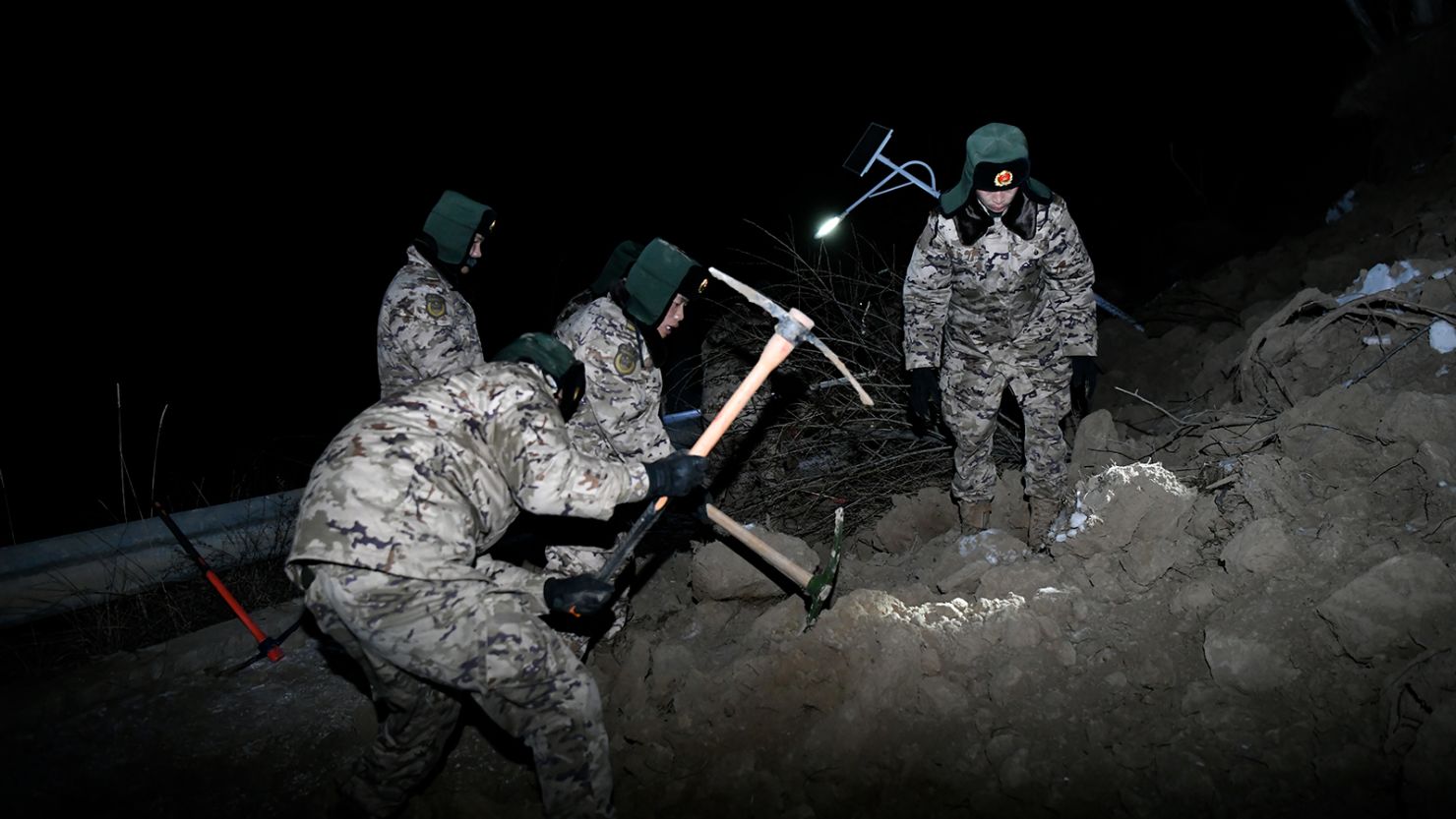Rescuers Fight Sub-Zero Temperatures After Earthquake Claims Over 100 Lives In China
China is grappling with the aftermath of a powerful 5.9 magnitude earthquake that struck the northwest region, leaving devastation in its wake. Now, rescuers fight sub-zero temperatures after earthquake claims over 100 lives in China. The unfolding tragedy has captured international attention as rescue teams battle harsh conditions to save lives and provide relief to affected communities.
Author:Dexter CookeReviewer:Hajra ShannonDec 19, 20232.4K Shares145.7K Views

China is grappling with the aftermath of a powerful 5.9 magnitude earthquake that struck the northwest region, leaving devastation in its wake. Now, rescuers fight sub-zero temperatures after earthquake claims over 100 lives in China. The unfolding tragedy has captured international attention as rescue teams battle harsh conditions to save lives and provide relief to affected communities.
The earthquake, with its epicenter in northwest China, struck with significant force, causing widespread destruction to buildings, infrastructure, and communities in the affected region. The scale of the disaster has overwhelmed local authorities, necessitating a swift and coordinated response to address the immediate needs of the affected population.
Late on Monday night, an earthquake in Gansu Province's Jishishan county caused damage to highways and homes. Residents ran outside, huddling overnight in the freezing winter cold, while rescuers raced to look for survivors trapped under rubble.
According to provincial authorities during a press briefing on Tuesday morning, the earthquake in Gansu has caused damage to over 4,700 dwellings and killed 105 people.
Rescuers fight sub-zero temperatures after earthquake claims over 100 lives in China. As emergency response teams work tirelessly to locate and extract survivors from the rubble, they must contend with extreme weather conditions that complicate rescue efforts.
The need for thermal insulation, specialized equipment, and medical support adds a layer of complexity to the ongoing operations.
One man described the vibrations as "being tossed [by] surging waves" in a statement made by other earthquake survivors.
The man, whose last name is Qin, told state media:
“„I felt the tremors so strongly because I live on the sixteenth floor. I woke my family up and we rushed down all 16 floors in one breath.- Qin
As Qin stepped outside into the -12C (10F) weather, she noticed that many of her neighbors had fled from the nearby buildings; some were clad in down jackets, some in blankets, and still others were only baring their chests.
The earthquake has triggered a humanitarian crisis as displaced individuals seek shelter, medical assistance, and basic necessities. Temporary shelters are being established to accommodate those who have lost their homes, while medical teams work to treat the injured amid the challenging circumstances. The coordination of relief efforts becomes paramount in addressing the multifaceted needs of the affected population.
Local communities are reeling from the impact of the earthquake, with families torn apart, homes destroyed, and livelihoods disrupted. The psychological toll on survivors, coupled with the challenges of rebuilding in the aftermath of a natural disaster, underscores the long-term consequences that extend beyond the immediate response phase.
For those who have been forced to evacuate their houses, authorities have already swiftly established makeshift camps and evacuation routes. According to Gansu officials, around 5,000 buildings and other structures have sustained damage.
Conclusion
As China confronts the aftermath of the devastating 5.9 magnitude earthquake, the resilience of affected communities and the collective efforts of rescue teams and international partners become central to the recovery process.
Rescuers fight sub-zero temperatures after earthquake claims over 100 lives in China. The tragedy underscores the urgent need for global solidarity in the face of natural disasters, prompting reflection on disaster preparedness, response strategies, and the broader implications for the safety and well-being of communities worldwide.
Jump to

Dexter Cooke
Author
Dexter Cooke is an economist, marketing strategist, and orthopedic surgeon with over 20 years of experience crafting compelling narratives that resonate worldwide.
He holds a Journalism degree from Columbia University, an Economics background from Yale University, and a medical degree with a postdoctoral fellowship in orthopedic medicine from the Medical University of South Carolina.
Dexter’s insights into media, economics, and marketing shine through his prolific contributions to respected publications and advisory roles for influential organizations.
As an orthopedic surgeon specializing in minimally invasive knee replacement surgery and laparoscopic procedures, Dexter prioritizes patient care above all.
Outside his professional pursuits, Dexter enjoys collecting vintage watches, studying ancient civilizations, learning about astronomy, and participating in charity runs.

Hajra Shannon
Reviewer
Hajra Shannona is a highly experienced journalist with over 9 years of expertise in news writing, investigative reporting, and political analysis.
She holds a Bachelor's degree in Journalism from Columbia University and has contributed to reputable publications focusing on global affairs, human rights, and environmental sustainability.
Hajra's authoritative voice and trustworthy reporting reflect her commitment to delivering insightful news content.
Beyond journalism, she enjoys exploring new cultures through travel and pursuing outdoor photography
Latest Articles
Popular Articles